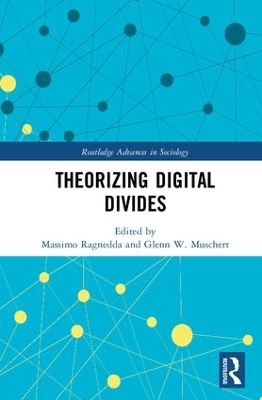
Theorizing Digital Divides
Routledge (Verlag)
978-1-138-21040-0 (ISBN)
Although discussion of the digital divide is a relatively new phenomenon, social inequality is a deeply entrenched part of our current social world and is now reproduced in the digital sphere. Such inequalities have been described in multiple traditions of social thought and theoretical approaches. To move forward to a greater understanding of the nuanced dynamics of digital inequality, we need the theoretical lenses to interpret the meaning of what has been observed as digital inequality.
This volume examines and explains the phenomenon of digital divides and digital inequalities from a theoretical perspective. Indeed, with there being a limited amount of theoretical research on the digital divide so far, Theorizing Digital Divides seeks to collect and analyse different perspectives and theoretical approaches in analysing digital inequalities, and thus propose a nuanced approach to study the digital divide.
Exploring theories from diverse perspectives within the social sciences whilst presenting clear examples of how each theory is applied in digital divide research, this book will appeal to scholars and undergraduate and postgraduate students interested in sociology of inequality, digital culture, Internet studies, mass communication, social theory, sociology, and media studies.
Massimo Ragnedda is a Senior Lecturer in Mass Communication at Northumbria University, Newcastle. Glenn W. Muschert is a Professor of Sociology and Social Justice Studies at Miami University, Ohio, USA.
Introduction: Massimo Ragnedda and Glenn W. Muschert
Section 1: Using classical social theories to understand digital divide
Chapter 1. Glenn W. Muschert and Ryan Gunderson, The Sociology of Simmel and Digital Divides: Information, Value, Exchange, and Sociation in the Networked Environment
Chapter 2: Massimo Ragnedda and Maria Laura Ruiu, Social capital and the three levels of digital divide. massimo.ragnedda@northumbria.ac.uk;
Chapter 3: Tomohisa Hirata, Do contemporary media technologies and the architects of them fill the role of the psychoanalyst for the users of them?
Chapter 4: Barbara Barbosa Neves & Geoffrey Mead, The interpretive and ideal-type approach: Rethinking digital non-use(s) in a Weberian perspective
Section 2: Associative and communicative perspectives
Chapter 5: Gerard Goggin. ‘Disability and Digital Inequalities: Rethinking Digital Divides with Disability Theory’.
Chapter 6: Lorenzo Dalvit. The materiality of mobile phones and visual impairment: accessible, accessibility and access devices
Chapter 7: Susan Kretchmer Theorizing Digital Divides Through the Lens of Social Construction of Technology, Knowledge Gap, and Social Identity Construction
Chapter 8: John Haffner, Connection in Divided Space: Theorizing the Geographies of the Digital Divide
Chapter 9: Eva Klinkisch, Anne Suphan. A "recognitional perspective" on the 21st century digital divide
Section 3: Critical and alternative perspectives.
Chapter 10: Last Moyo Rethinking the network society: A decolonial and border gnosis of the digital divide in Africa
Chapter 11: Duygu Özsoy. Digital Divide in Turkey as a non- Western Country
Chapter 12: Citt Williams, Tania Gupta, Marilyn Wallace, Theorising Online Representation and the Voice of the Digital Subaltern.
Chapter 13. Morten Hjelholt and Jannick Schou. The Digital Divide and Citizen Classifications
Chapter 14: Emma A. Jane, Gendered cyberhate: a new digital divide?
Afterword. Jan Van Dijk
| Erscheinungsdatum | 12.10.2017 |
|---|---|
| Reihe/Serie | Routledge Advances in Sociology |
| Zusatzinfo | 1 Line drawings, black and white; 4 Halftones, black and white |
| Verlagsort | London |
| Sprache | englisch |
| Maße | 156 x 234 mm |
| Gewicht | 453 g |
| Themenwelt | Geisteswissenschaften ► Geschichte |
| Recht / Steuern ► EU / Internationales Recht | |
| Recht / Steuern ► Strafrecht ► Kriminologie | |
| Sozialwissenschaften ► Kommunikation / Medien ► Medienwissenschaft | |
| Sozialwissenschaften ► Soziologie | |
| ISBN-10 | 1-138-21040-4 / 1138210404 |
| ISBN-13 | 978-1-138-21040-0 / 9781138210400 |
| Zustand | Neuware |
| Haben Sie eine Frage zum Produkt? |
aus dem Bereich


